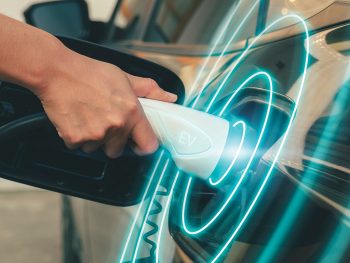New report highlights crucial role of fleet electrification in net zero
Fleet electrification is a vital means to decarbonise the transportation sector, with the potential to significantly drive emissions reduction.

The new report from Charles River Associates examines current and emerging trends in fleet electrification across Europe
That’s according to a new report from global consultancy Charles River Associates, which examines current and emerging trends in fleet electrification across Europe and reveals the challenges and opportunities.
The report underscores that fleet electrification is key to reducing emissions at global, national and local levels. Despite accounting for 25% of the total European road vehicle population, fleet vehicles – including cars, vans, buses and HGVs – account for 50% of emissions within the transportation sector.
While the decarbonisation of passenger vehicles has made large strides, with EV sales at an all-time high, the electrification of other fleet segments is not moving as quickly.
CRA also notes that different types of fleets have varying operational needs, which must translate into diverse electrification strategies.
To achieve the sector-wide electrification of fleets, several barriers need to be addressed, ranging from technical to financial and logistical ones; all revealed in the report. It also includes a look at the grid challenge to fleet electrification, considering both the need for grid investments and additional generation capacity, as reflected in a featured real-life case study.
Robert Stocker, senior associate at CRA and co-author of the paper, said: “Currently, less than 2% of fleet vehicles across Europe are electric. To meet the [EU’s] ambitious Fit for 55 targets set for 2030, which aim for 55% electrification of passenger and light commercial vehicles, and 30% electrification of trucks and buses, the pace of electrification must accelerate significantly.
“However, several barriers stand in the way of widespread fleet electrification. These challenges include operational complexity and potential productivity losses, initial capital costs and financial risks, limited vehicle availability, charging infrastructure accessibility, consumer apprehensions, and perhaps most notably, grid constraints.”
The paper, which is aimed at all electrification stakeholders, from fleet operators to utilities and investors, also emphasises that electrification should be part of a broader energy strategy that incorporates strategies such as energy storage and on-site renewables. Additionally, leveraging fleet vehicles as flexibility assets through Vehicle-to-Grid (V2G) and smart charging solutions can enhance the sustainability and resilience of energy systems.
To access the CRA report, please click here.

